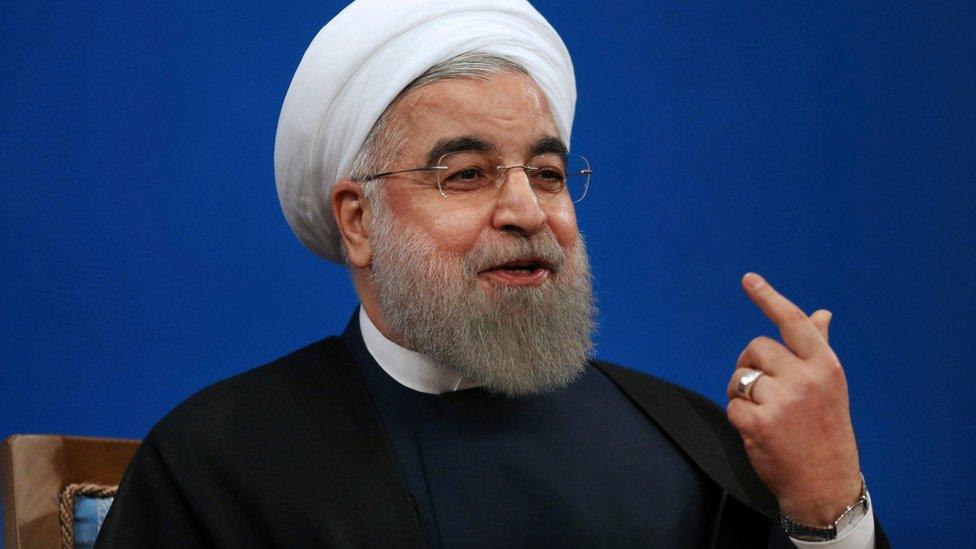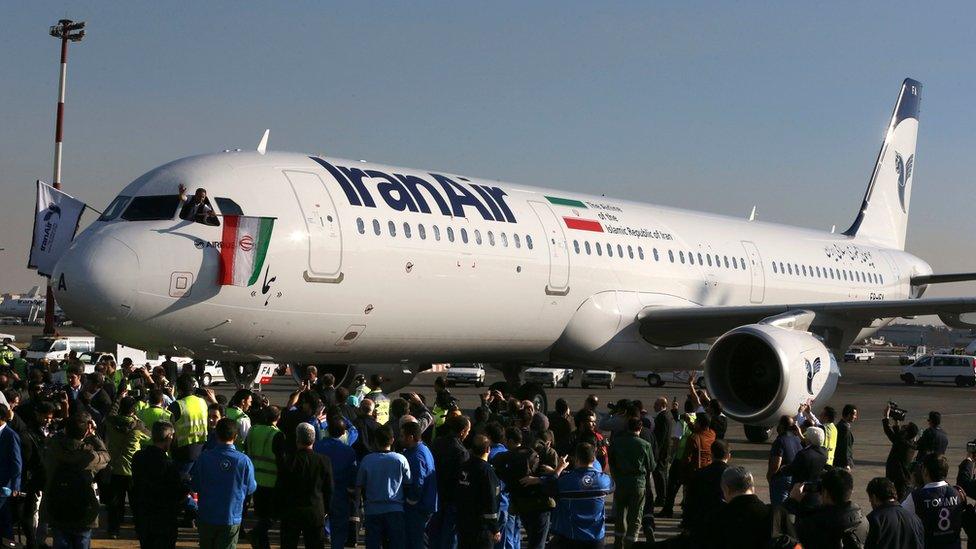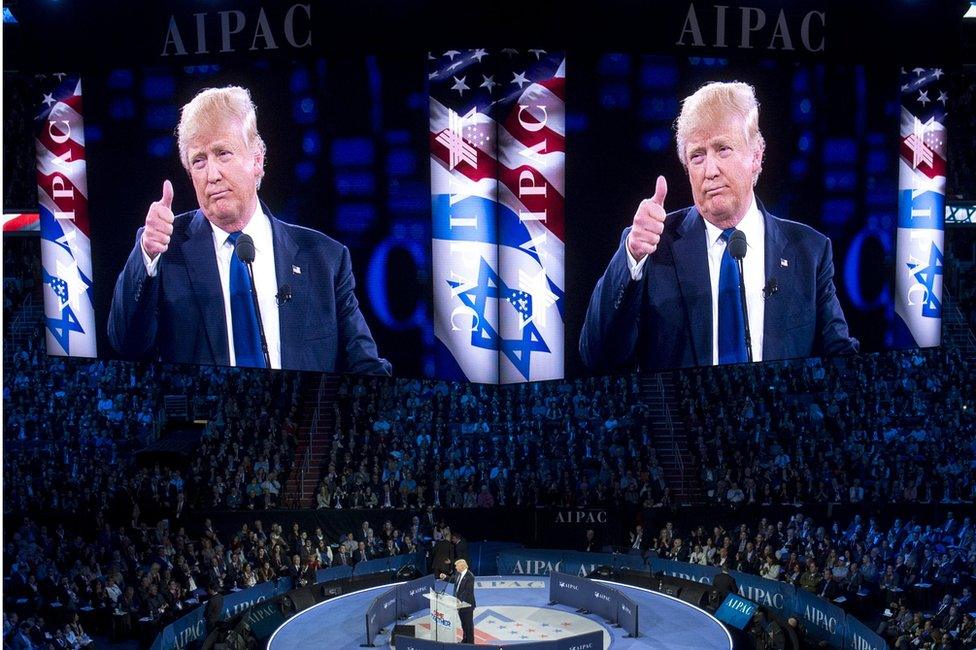No going back on Iran nuclear deal, Rouhani warns Trump
- Published

Hassan Rouhani said Donald Trump was unlikely to act on his threats once in the White House
Iran's President, Hassan Rouhani, has dismissed US President-elect Donald Trump's criticism of the nuclear deal that it signed with world powers.
Mr Trump has described the agreement - implemented a year ago - as "the worst deal ever" and threatened to scrap it.
But Hassan Rouhani said the comments were just "slogans" and that there was no chance of any renegotiation.
Under the deal, Iran agreed to curb its sensitive nuclear activities in return for the lifting of economic sanctions.
Outgoing US President Barack Obama says the deal will prevent Iran from obtaining a nuclear weapon.
Iran says it has the right to nuclear energy - and stresses that its nuclear programme is for peaceful purposes only.
During the US presidential election campaign last March, Mr Trump told, external the American Israel Public Affairs Committee that his "number-one priority" would be "to dismantle the disastrous deal".
He said his biggest concern was not that Iran would violate the agreement, but that it could "keep the terms and get to the bomb by simply running out the clock".

The lifting of sanctions meant Iran could take delivery of its first Airbus jet last week
At a news conference marking the first anniversary of the lifting of sanctions on Tuesday, Iran's president was asked about Mr Trump's comments.
"The respected president-elect has so far expressed the opinion that he is unhappy about it [the deal], or that it is not a good deal, or the worst deal ever," he answered.
"These are all slogans and I deem it unlikely that he would act on it once he enters the White House. Since this is not a bilateral agreement, it is not up to him to say whether he likes it or dislikes it."
Mr Rouhani went on to stress that "any renegotiation" was "out of the question".

Donald Trump criticised the deal in a speech to the American Israel Public Affairs Committee
On Monday, Mr Obama issued a statement, external saying the deal had "achieved significant, concrete results in making the United States and the world a safer place" by rolling back Iran's nuclear programme and "verifiably" preventing it from developing a nuclear weapon.
He noted that Iran had reduced its uranium stockpile by 98% and removed two thirds of its centrifuges, which are needed to separate out the fissile isotope U-235 from uranium hexafluoride gas.
Low-enriched uranium, which has a 3%-4% concentration of U-235, can be used to produce fuel for nuclear power plants. But it can also be enriched to the 90% needed to produce nuclear weapons.
Iran was also not enriching any uranium at the underground Fordo facility, nor using advanced centrifuges to enrich, according to Mr Obama.
In an apparent warning to Mr Trump, he said: "The Iran deal must be measured against the alternatives. A diplomatic resolution that prevents Iran from obtaining a nuclear weapon is far preferable to an unconstrained Iranian nuclear programme or another war in the Middle East."